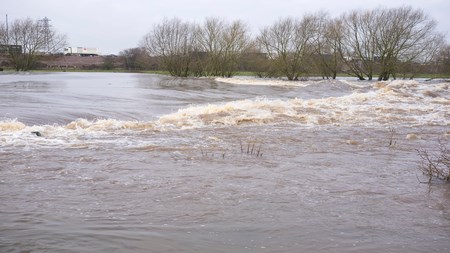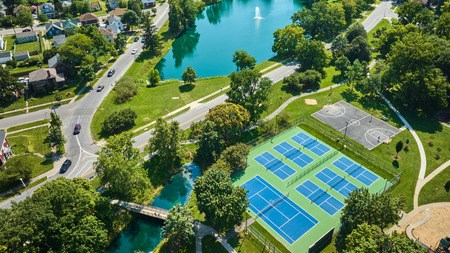Is KZN, long the poor cousin of the other 2 major provinces, on the verge of regaining the top residential property spot?
I wonder how many people have noticed that in recent years KZN province has
narrowed the gap between itself and the more illustrious provinces of Gauteng
and the Western Cape in terms of average residential property prices.
In reality, if one could measure average house price value down to the last
informal shack, KZN would probably be far behind the other 2 major provinces in
terms of average price. While being almost on a par with the Western Cape in
terms of economic size, on a per capita basis income in 2004 KZN measured a mere
R16,724, far below the estimated R31,614 for the Western Cape and the R40,340
for Gauteng according to Globalinsight figures.
54.1% of KZN's people are believed to live in poverty compared with 28.2% in
Gauteng and 22.3% in the Western Cape. Far fewer people thus participate in the
formal housing market in KZN than in the other 2 major provinces.
However, for those who do play in KZN's formal housing market, the future
appears bright.
After losing much ground from around 1995 to 2002, the average house price in
KZN, as reflected by Absa house price data, has moved from being 71.9% of that
of Gauteng and 71.5% of the average in the Western Cape in 2002, to a more
respectable 92.3% of the average price of Gauteng and 81.7% of that of the
Western Cape in 2005. In the first quarter of 2006, a 23.4% year-on-year
inflation rate far outstripped both the national average house price inflation
rate of 14.5% as well as the inflation rates of the other 2 major provinces.
But my bullish view for KZN is not only based on past trends. It is driven by a
number of very exciting developments that either in progress or in the pipeline.
The KZN economy is much dependent on that of Gauteng. After some troubled years
in the early-1990s, Gauteng has since been in the process of confirming its
status as the economic and political hub not only of South Africa but of
Southern Africa too. Globalinsight believes that Gauteng has had the most rapid
average economic growth of the three major provinces since 1996, and this has
helped KZN into second place growth-wise ahead of the Western Cape. More
recently, the turn of the commodity super-cycle is a further boost for Gauteng,
which is also the services hub of the region formerly known as the Transvaal,
SA's mineral rich area.
KZN benefits from a healthy inland economy, as it remains Gauteng's (and the
former Transvaal region's) most prominent transport gateway to the world as well
as the world's main gateway to Gauteng (Transvaal). Admittedly, Port Elizabeth
will attempt to compete with KZN to a limited extent for the "gateway" status as
Coega slowly gets off the ground, and Maputo will also attempt to get a larger
slice of the Gauteng pie. But the priority that Transnet is giving to Durban
port upgrades, as well as the Richards Bay Coallink, are supporting of KZN's
prime "gateway status", while the N3 toll road link with Gauteng is by far the
country's finest and far shorter than the route to PE. The rail link between
Durban and Gauteng will no doubt receive priority, too, as part of Transnet's
turnaround process.
Thus, from a manufacturing point of view what better place to be than eThekwini
metro, where one can both export through Africa's largest port as well as
utilise the country's prime transport route to supply the Gauteng market.
Unsurprisingly, therefore, KZN has some of the most exciting industrial
developments in the pipeline, including the Toyota supplier park at Prospecton,
the moving of the airport to La Mercy as part of the creation of Dube Tradeport
area, and the re-development of the old airport land for industrial purposes.
It is clear, therefore, that KZN will be gearing up to massively improve its
economic growth potential. While this economic growth may largely track
Gauteng's, this coastal province will probably experience a greater increase in
relative land scarcity (a similar challenge that the Cape metro has) than its
"inland engine" which has the ability to expand in all directions. This scarcity
will boost prime residential land values.
Also key to the province's residential property market performance is tourism,
and here the province also has the ability to play catch-up with the Western
Cape. The new waterfront development will provide the "rich and famous" with a
place to holiday and play, and could one day rival the success of the Cape Town
Water front which in my view saved the Cape Town CBD. And while Durban perhaps
lacks the scenic beauty of Cape Town, the KZN coast's weather and water
temperature is far more appealing.
But while Durban lacks it, in KZN there most certainly is scenic beauty, and it
lies in the Natal Midlands along with the country's most spectacular mountain
range, the Drakensberg. The Midlands may well become the "wine route" of KZN,
obviously not producing wine but being a stunning destination for daily getaways
for Durbanites, building a reputation more on its restaurants, country pubs and
B&Bs . Furthermore, as working life for the "Vaalies" becomes more competitive,
short-stay holidays become the name of the game, and the accessibility of the
KZN coast as well as the Midlands and Drakensberg (perfectly situated on the N3
from Joburg) areas plays increasingly into the province's hands. Not
surprisingly, therefore, we are seeing significant development in the Midlands
and Central Drakensberg.
In short, therefore, KZN's proximity to Gauteng is serving it well, as the
engine of Southern African growth builds up steam. While the province's formal
housing market is significantly smaller than those of the other 2 major
provinces, key developments that raise the province's growth potential and
tourism/holiday appeal could see this market outperform its major peers in the
years to come, regaining its "highest average house price" status last held in
the 1970s. For average capital growth, it is my pick of the "Big 3" provinces
during the remainder of the current decade.



